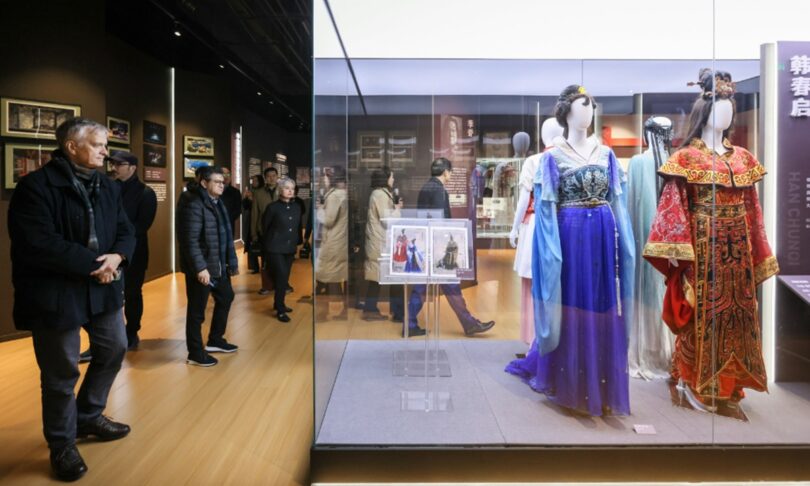Lu Wenao
BEIJING : The World Association for Performing Arts (WAPA) was unveiled on Monday in Beijing with a total of 30 institutions from 19 countries having joined the organization.
Initiated by the National Centre for the Performing Arts (NCPA) in 2019, the international body will focus on strengthening global cultural exchanges, said Wang Ning, head of the NCPA and chairperson of the WAPA.
“The global performing arts industry shares a common destiny, and over the years, the NCPA has been committed to promoting the cultural integration of various countries and fostering people-to-people exchanges between China and foreign countries,” Wang said.
The alliance aims to provide an open and multilateral platform for communication, promote the international development of the performing arts, strengthen the integration of technology and performing arts, and facilitate mutual exchanges and prosperity among world civilizations, according to Wang.
“As the initiator of the WAPA, the NCPA will continue to work with global artistic institutions to support the development of performing arts, join hands to weave a spiritual bond of beauty and commonality in the global performing arts,” Wang noted.
The alliance will focus on enhancing operational capabilities, promoting ongoing collaboration between institutions, and accelerating the transformation of high-quality results to build a broader platform for mutual exchanges among civilizations.
Cormac Simms, the administrative director of the Royal Opera in the UK, a council member of the WAPA, said the organization will boost international cooperation.
“Theater, music and the performing arts are hugely important, and they could be meaningful for all races,” Simms said. “The WAPA promotes cultural diversity and exchanges, which also facilitate international cooperation. Together, we will make progress.”
Rory Jeffes, the international engagement advisor of the Melbourne Symphony Orchestra in Australia, said the organization could bridge divides.
“The WAPA is an opportunity for us across the whole world to be able to bridge divides and to share the common humanity that brings us all together,” Jeffes told the Global Times.
“It’s not about language. It’s not about our individual cultures. It’s not about anything other than a celebration of what it is that makes it special for us all to be human while sharing this planet together.”
Marcelo Lopes, executive director of the Sao Paulo Symphony Orchestra, echoed the idea that the organization could bring people together.
“We believe music could pull people together. Putting people onto the same page, so we can understand each other. We can have more tolerance through diversity. That’s what we need,” Lopes told the Global Times.
Xu Zhong, head of the Shanghai Opera House, said the establishment of WAPA is sure to facilitate a connection between domestic performing arts and international renowned institutions.
“The world’s symphony orchestras are paying attention to China and the development of Chinese symphony music. It can be predicted that there will be intensive cooperation upcoming between orchestras. I think this is very gratifying for domestic performing artists,” Xu said.
A parallel symphony music forum will also be held until Tuesday, with a focus on expanding the influence of performing arts institutions among a younger demographic.
Courtesy: globaltimes







